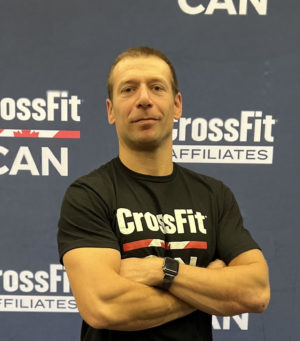Question: Should you wear a weightlifting belt in CrossFit?
October 16, 2024
Question: Should you wear a weightlifting belt in CrossFit?
Whether you’re a recreational CrossFit athlete or a competitor, one question often arises: Should I wear a weightlifting belt? The answer largely depends on your goals, experience, and training approach.
For the recreational CrossFit athlete, a belt can help create more intra-abdominal pressure, offering support and added stability when performing heavy lifts, such as deadlifts, squats, and Olympic lifts. This is particularly useful as a supplement to the lifter’s bracing techniques, which involve tightening the core muscles to create a stable base for lifting. A belt provides a solid surface to brace into during considerable efforts.
For the competitor, every bit of stability counts in high-pressure situations where you’re attempting near-maximal lifts. Elite athletes are well-versed in bracing techniques but also use belts as an extra support layer when going for personal records or when fatigue sets in during intense workouts.
For the recreational CrossFit athlete, a belt can give a psychological boost, especially if you’re aiming for a personal best. Adding support can help you push through mental barriers and feel more confident during max-effort lifts.
For the competitor, when every kilogram or pound counts in competition, a belt can make the difference between hitting a lift and missing it. Elite athletes know when and how to use a belt to maximize their performance without sacrificing mobility or speed.
Note: Recording belted and unbelted max efforts for movements like squats, deadlifts, and Olympic lifts can add a layer of variance.
Relying on a belt too often can hinder the development of natural core strength for recreational CrossFit athletes. Building core stability without assistance is crucial for long-term performance and injury prevention. You want your body to learn to brace and stabilize under load without external aids.
For the competitor, athletes focus on building a rock-solid core, which they rely on during high-rep, fast-paced movements in competition. Overusing a belt can lead to reliance and may even slow you down during complex movements like thrusters or cleans where mobility is essential.
CrossFit workouts often demand a mix of strength, speed, and agility. Wearing a belt during movements like burpees, box jumps, or gymnastics components can be restrictive and uncomfortable. It can get in the way during dynamic, multi-movement workouts. A belt will also slow the transition time between movements and lower the intensity.
Using a belt as a crutch is easy for the recreational athlete, but relying too heavily on it can mask poor form. Instead of using a belt for everyday lifting, recreational athletes should focus on mastering proper form and bracing techniques, building the strength necessary to lift safely without extra support.
For the competitor, pristine technique is essential, especially during long competitions that require repeated high-volume movements. Athletes know belts aren’t necessary for every lift and trust their form and core strength to see them through most of their training and competition, saving the belt for specific max-effort attempts.
Whether or not to wear a belt depends on your goals, experience level, and how you use it. A belt can be a valuable tool for boosting confidence and supporting your body during heavy lifts, but it shouldn’t become a crutch. Remember, mastering technique and building core strength is the key to safe and effective lifting. Keep this in mind as you navigate your training.
Have a question for a coach? Please submit that here.

Matthieu Dubreucq is a Seminar Staff Flowmaster for CrossFit’s Education Department and has been the owner of CrossFit Laval since 2008. It is now hosted by Matt’s Garage Training Club. He is a Certified CrossFit Coach (CF-L4), former Canadian Sailing Team athlete, Canadian Ski Alliance Level 3 Ski Instructor, and Canadian Yachting Association Level 4 Coach. He is a published kid’s book author of “Let’s Run, Allons Courir,” and in July 2024, he published his first nonfiction book, co-authored with Christopher Dedeyan, “Play For Profit.”